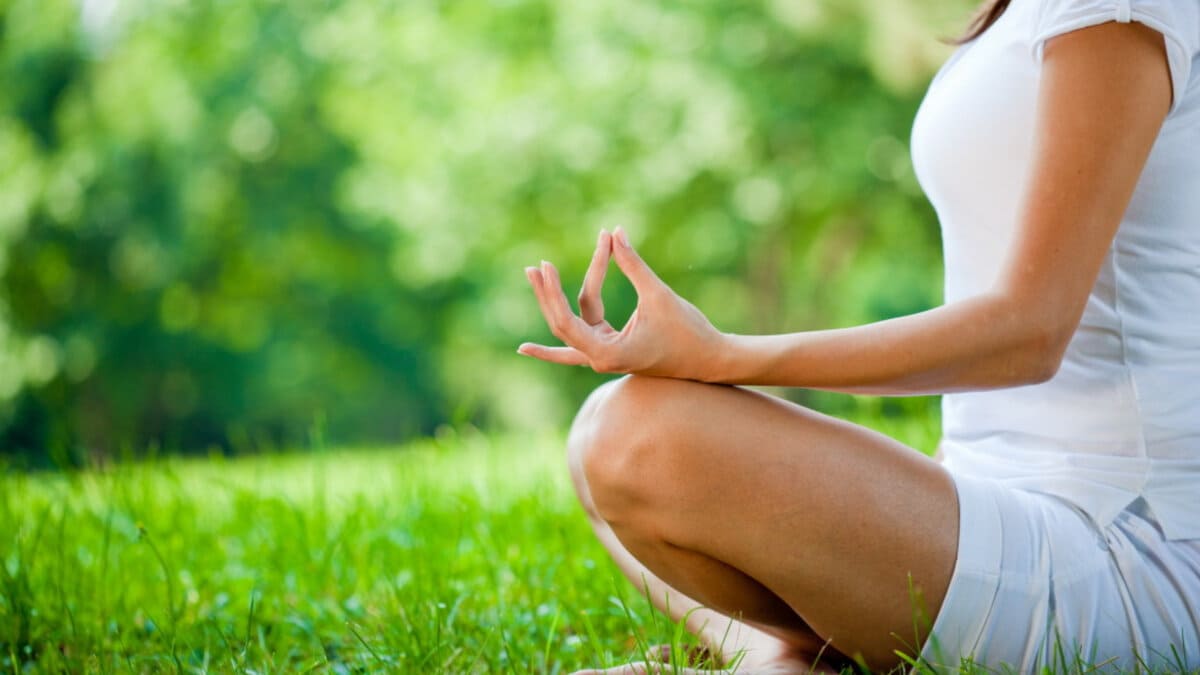Relaxation Techniques: 14 Proven Techniques for Reducing Stress
In today’s fast-paced world, stress has become a common part of our lives. The pressures of work, relationships, and daily responsibilities can take a toll on our mental and physical well-being, leaving us feeling overwhelmed and exhausted. 
The detrimental effects of stress are far-reaching, affecting both our physical and mental health. From increased blood pressure and weakened immune system to digestive problems and sleep disturbances, chronic stress can have a profound impact on our overall well-being.
However, the good news is that there are various relaxation techniques available to us that can help manage and reduce stress effectively. These techniques empower us to take control of our well-being and create a sense of balance in our lives. By incorporating relaxation practices into our daily routines, we can counteract the negative effects of stress and promote a state of calmness and inner peace.
In this article, we will explore a wide range of relaxation techniques that have proven to be effective in managing stress. From deep breathing exercises and progressive muscle relaxation to mindfulness meditation and guided imagery, we will delve into each technique, providing you with practical tips and step-by-step instructions on how to incorporate them into your daily life.
Types of Relaxation Techniques
Whether you’re seeking immediate relief from stress or looking to cultivate a long-term practice of relaxation, this article will serve as your comprehensive guide. Get ready to embark on a journey of self-care and stress reduction as we dive into the world of relaxation techniques. Let’s reclaim our peace of mind and unlock the key to managing stress effectively.
1. The Impact of Stress on Health
Stress can have detrimental effects on both our physical and mental health. It can lead to increased blood pressure, a weakened immune system, digestive problems, and sleep disturbances.
Chronic stress can also contribute to the development of various health conditions such as anxiety disorders, depression, and heart disease. Therefore, it is crucial to incorporate relaxation techniques into our lives to mitigate the negative impact of stress.
2. Deep Breathing Exercises: A Calming Technique
One effective relaxation technique is deep breathing exercises. By focusing on slow, deep breaths, we can activate the body’s relaxation response and reduce stress. To practice deep breathing, find a quiet place to sit or lie down comfortably.
Inhale deeply through your nose, allowing your abdomen to rise, and then exhale slowly through your mouth, letting go of any tension or stress with each breath. Repeat this process for several minutes, focusing solely on your breath.
3. Progressive Muscle Relaxation: Releasing Tension from the Body
Progressive muscle relaxation is a technique that involves systematically tensing and relaxing different muscle groups to induce relaxation. Start by tensing the muscles in your toes for a few seconds and then releasing them, noticing the contrast between tension and relaxation.
Gradually work your way up through your body, tensing and relaxing each muscle group, including your legs, abdomen, shoulders, and face. This technique can help release physical tension and promote a sense of deep relaxation.
4. Mindfulness Meditation: Cultivating Present-Moment Awareness
Mindfulness meditation is a practice that involves bringing your attention to the present moment without judgment. Find a comfortable position, close your eyes, and focus on your breath or a specific point of focus.
As thoughts arise, gently acknowledge them without getting caught up in them and return your attention to the present moment. Regular practice of mindfulness meditation can enhance self-awareness, reduce stress, and improve overall well-being.
5. Guided Imagery: Creating a Peaceful Mental Oasis
Guided imagery is a relaxation technique that involves using your imagination to create a peaceful mental image. Find a quiet place where you won’t be disturbed and close your eyes.
Visualize yourself in a serene setting, such as a beach or a lush garden, and engage your senses by imagining the sights, sounds, smells, and textures of this place. Allow yourself to fully immerse in this mental oasis, letting go of stress and tension.
6. Yoga and Stretching: Combining Movement and Mindfulness
Yoga and stretching exercises combine physical movement with mindfulness, making them excellent relaxation techniques. These practices involve gentle stretches, poses, and breathing exercises that promote flexibility, strength, and relaxation.
Regular yoga and stretching sessions can help reduce muscle tension, improve posture, and create a sense of calmness and well-being.
7. Aromatherapy: Using Scents to Promote Relaxation
Aromatherapy is the use of essential oils to promote relaxation and improve well-being. Certain scents, such as lavender, chamomile, and eucalyptus, have calming properties that can help alleviate stress.
You can use essential oils in various ways, such as through diffusers, massage oils, or adding a few drops to your bathwater. Experiment with different scents to find what works best for you.
8. Journaling: Expressing and Reflecting on Thoughts and Emotions
Journaling is a therapeutic technique that involves writing down your thoughts, feelings, and experiences. It provides an outlet for self-expression and can help you gain insights into your emotions and stress triggers.
Set aside a dedicated time each day to write freely without judgment. You can also use prompts or gratitude exercises to focus on positive aspects of your life. Journaling can be a valuable tool for self-reflection and stress management.
9. Laughing Therapy: Finding Humor in Life
Laughter is a powerful stress reliever. It releases endorphins, the body’s natural feel-good chemicals, and helps reduce the production of stress hormones.
Engage in activities that make you laugh, such as watching funny videos, spending time with humorous friends, or attending comedy shows. Laughter can lighten your mood, improve your outlook, and provide a much-needed break from stress.
10. Listening to Music: A Soothing Melody for the Mind
Music has a profound impact on our emotions and can be a powerful relaxation tool. Create a playlist of soothing and calming music that resonates with you.
Take a few moments each day to listen to this music, allowing the melodies and rhythms to wash away stress and promote relaxation. Whether it’s classical, instrumental, or nature sounds, find the music that brings you tranquility.
11. Social Support: Connecting with Others for Stress Relief
Building and nurturing social connections is essential for managing stress. Reach out to family, friends, or support groups for emotional support and understanding.
Engaging in meaningful conversations, sharing experiences, or simply spending quality time with loved ones can provide a sense of belonging and alleviate stress. Surrounding yourself with a supportive network of people can make a significant difference in your overall well-being.
12. Time Management: Organizing and Prioritizing Responsibilities
Poor time management can contribute to increased stress levels. It’s important to organize and prioritize your responsibilities to create a sense of control and reduce overwhelm.
Start by making a to-do list, breaking down tasks into smaller, manageable steps. Set realistic deadlines and allocate time for relaxation and self-care. By effectively managing your time, you can reduce stress and increase productivity.
13. Setting Boundaries: Saying No and Prioritizing Self-Care
Learning to set boundaries is crucial for managing stress and maintaining your well-being. It’s okay to say no to requests that overwhelm you or compromise your well-being.
By setting boundaries, you prioritize your own needs and ensure that you have time and energy for self-care. Learn to communicate your limits assertively and without guilt. Remember, taking care of yourself is essential for managing stress effectively.
14. Healthy Lifestyle Habits: Exercise, Sleep, and Nutrition
Leading a healthy lifestyle is vital for stress management. Regular exercise helps release endorphins, improves mood, and reduces stress levels. Aim for at least 30 minutes of moderate exercise most days of the week.
Additionally, prioritize quality sleep by establishing a consistent sleep routine and creating a relaxing environment. Adequate nutrition is also important, as certain foods can influence your mood and energy levels. Incorporate a balanced diet rich in fruits, vegetables, whole grains, and lean proteins.
Conclusion
In conclusion, managing stress is essential for maintaining our overall well-being. By incorporating various relaxation techniques into our daily routine, we can effectively reduce stress levels and promote a sense of calmness and balance.
Deep breathing exercises, progressive muscle relaxation, mindfulness meditation, guided imagery, yoga, aromatherapy, journaling, laughing therapy, listening to music, social support, time management, setting boundaries, and adopting healthy lifestyle habits all contribute to stress reduction.
Experiment with these techniques and find the ones that resonate with you. Prioritize self-care and remember that managing stress is a lifelong practice that requires consistency and mindfulness.
Frequently Asked Questions
1. Can relaxation techniques completely eliminate stress?
Relaxation techniques are effective tools for managing and reducing stress. While they cannot completely eliminate stress from our lives, they provide us with coping mechanisms and promote overall well-being.
2. How long should I practice relaxation techniques each day?
The duration of practice varies depending on the technique and individual preferences. Even a few minutes of relaxation exercises can be beneficial. Aim for at least 10-15 minutes each day, gradually increasing the duration as you become more comfortable.
3. Can relaxation techniques be used in conjunction with other stress management methods?
Absolutely! Relaxation techniques can be combined with other stress management methods such as counseling, exercise, and healthy lifestyle habits. It’s important to adopt a holistic approach to stress management.
4. Are relaxation techniques suitable for everyone?
Most relaxation techniques are safe and suitable for the majority of individuals. However, if you have specific health concerns or medical conditions, it’s advisable to consult with a healthcare professional before starting any new relaxation practice.
5. How long does it take to experience the benefits of relaxation techniques?
The benefits of relaxation techniques can be experienced immediately, as they help activate the body’s relaxation response. With regular practice, you will notice cumulative effects, such as reduced stress levels, improved mood, and enhanced overall well-being.


























